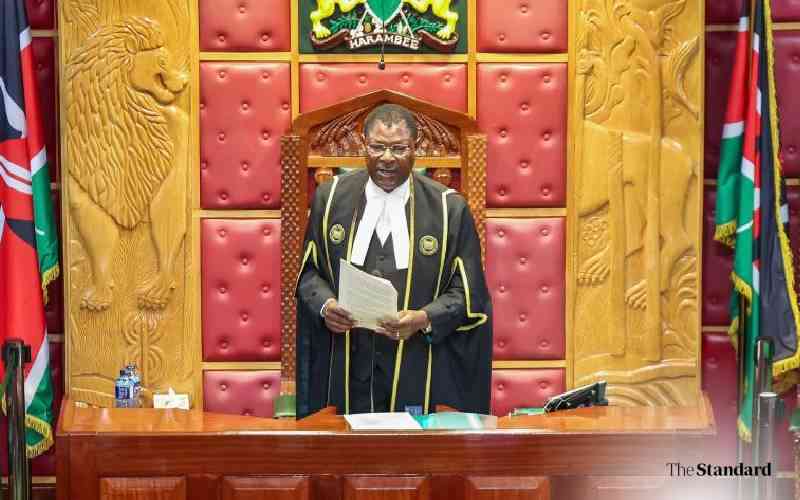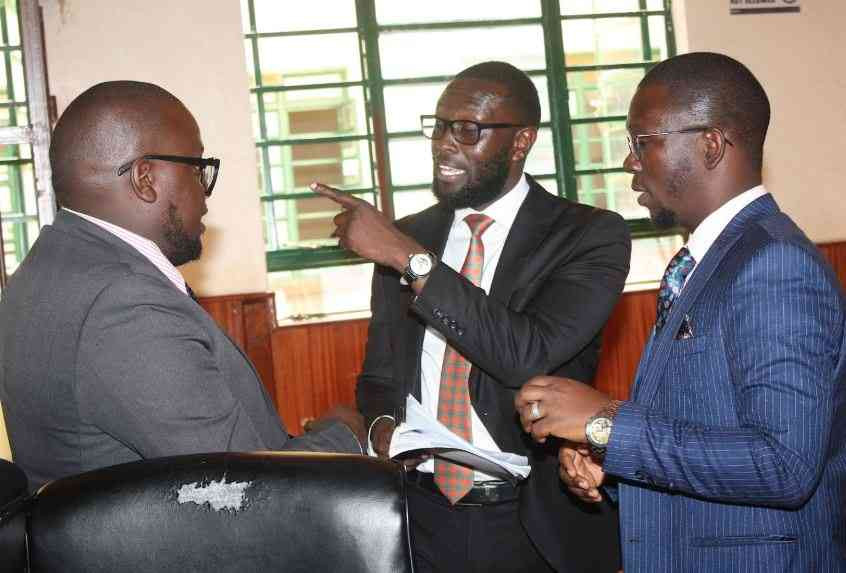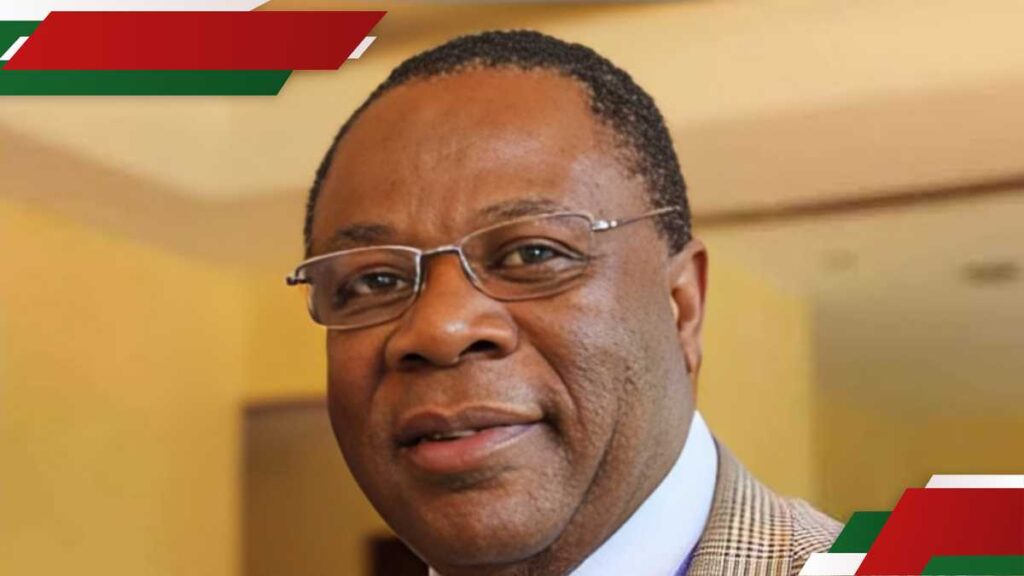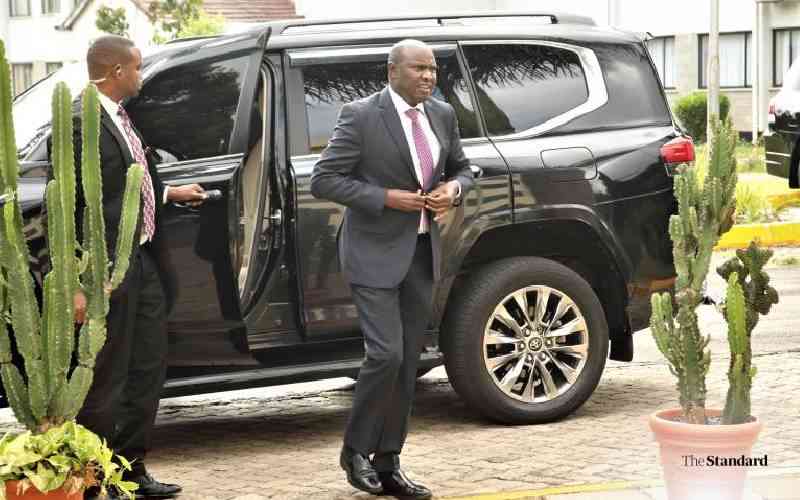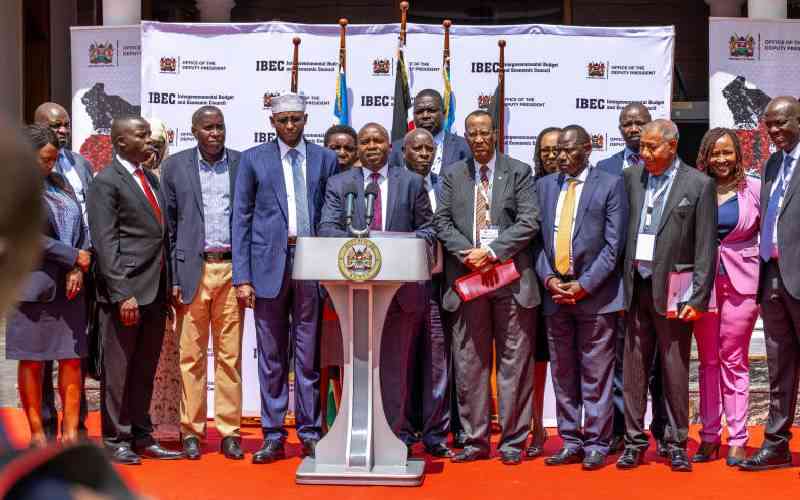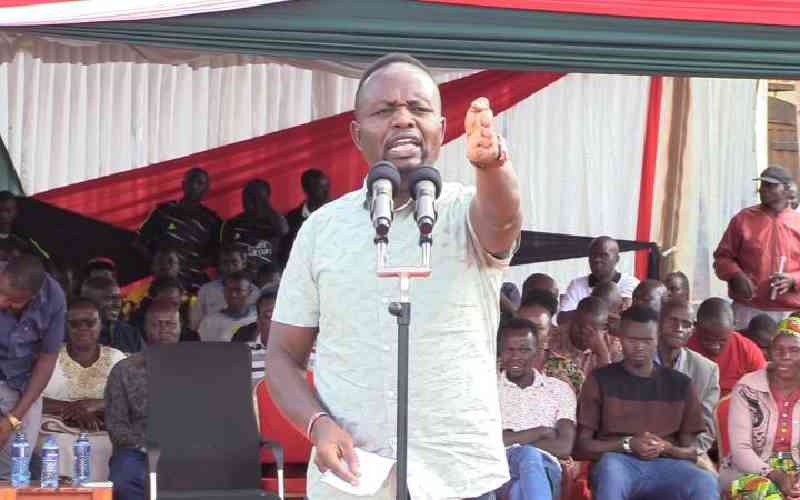The vetting of Independent Electoral and Boundaries Commission (IEBC) nominees will finally take off after days of uncertainties, with the Justice and Legal Affairs committee (JLAC) now directed to proceed with the process.
Speaker of the National Assembly, Moses Wetang’ula, directed JLAC to move with speed and proceed with the vetting of IEBC nominees, which include Chairpersons and Members and lamented courts interference with Parliament’s responsibilities.
He said that no one has the authority to enjoin Parliament from executing its mandate.
“I wish to inform the House that a formal communication is in preparation regarding this matter, with the aim of offering clear, precedent-setting guidance. However, for the avoidance of doubt, let it be underscored, nobody under any law or constitutional provision has the authority to bar or injunct Parliament from executing its mandate,” he said during the afternoon session.
He said Parliament is a constitutionally established institution, with the authority to discharge its constitutional functions.
“In that regard, I hereby direct JLAC to proceed with urgency and conduct the vetting of the nominees for the positions of Chairperson and Commissioners of the IEBC. The committee should submit its report to this House without delay,” he directed.
Once a matter is seized by Parliament, whether under consideration in a committee or in the plenary, the committee proceedings, Wetang’ula said they are deemed a mirror of the plenary and in both cases, the deliberations carry equal weight and legal standing.
“For the record, I have requested the Honourable Chief Justice Martha Koome to convene a colloquium with Members of Parliament including myself so that we may engage constructively, rather than appearing to talk past each other as separate arms of government. We must acknowledge that we need one another in service to the Republic,” he stated.
He said Parliament firmly discourages and will not condone any institutional overreach by one arm of government into the domain of another, particularly on matters where the law, the Constitution, and moral reasoning are abundantly clear.
“Any party aggrieved by this process whether within the Judiciary, the Executive, or among the general public, retains the right to seek redress through the courts, after Parliament has completed its official business,” he said.
He added, “That is the lawful, constitutional, and proper course of action. To this end, I shall issue a formal and precedent-setting communication next week to further clarify this matter and provide guidance for future engagements.”
The Speaker issued the directive after Minority Leader, Junet Mohamed, raised questions on the interference of the House in conducting its business, which is well provided in law.
“Mr. Speaker, I rise to bring to your attention a matter of great significance to this House, a matter that goes to the very heart of how this Parliament functions. Earlier today (Thursday), a ruling was made concerning a matter that is currently pending before JLAC,” he said.
Junet said that the National Assembly is guided by rules, traditions, and precedents, adding that the House is not only made of procedure but also such principles have been upheld by Wetang’ula’s predecessors over time.
Stay informed. Subscribe to our newsletter
He insisted it is a well-established precedent that once a matter has been committed to a committee of the House by the Speaker, that committee becomes an extension of the plenary.
Junet added that the Judiciary is expected to allow Parliament to conclude its work before any litigation can be entertained, insisting that this has been the tradition, and it has served this democracy well.
“Therefore, it is unconstitutional to inject or rather, to injunction Parliament from performing its mandate. Article 95 and Article 96 of the Constitution are clear about the legislative authority of Parliament. Just as we, in this House, cannot legislate on a matter that is actively before the courts, the courts must also afford us the same respect by allowing us to finish our business,” he said.
Going forward, Junet said Parliament cannot and will not be constrained from executing its constitutional roles.
The High Court on Wednesday cleared the way for the National Assembly to proceed with the vetting and approval of nominees to the IEBC.
In his ruling earlier, High Court Judge Justice Lawrence Mugambi lifted an earlier order in which he had barred the National Assembly from proceeding with the vetting of the nominees to the post of IEBC Chairperson and six others for the position of Commissioners.
The Judge, however, gave an order barring the gazettement or swearing in of the nominees in the event that they are approved by the National Assembly, pending the conclusion of the present Petition, filed by Kelvin Roy Omondi and Boniface Mwangi.








